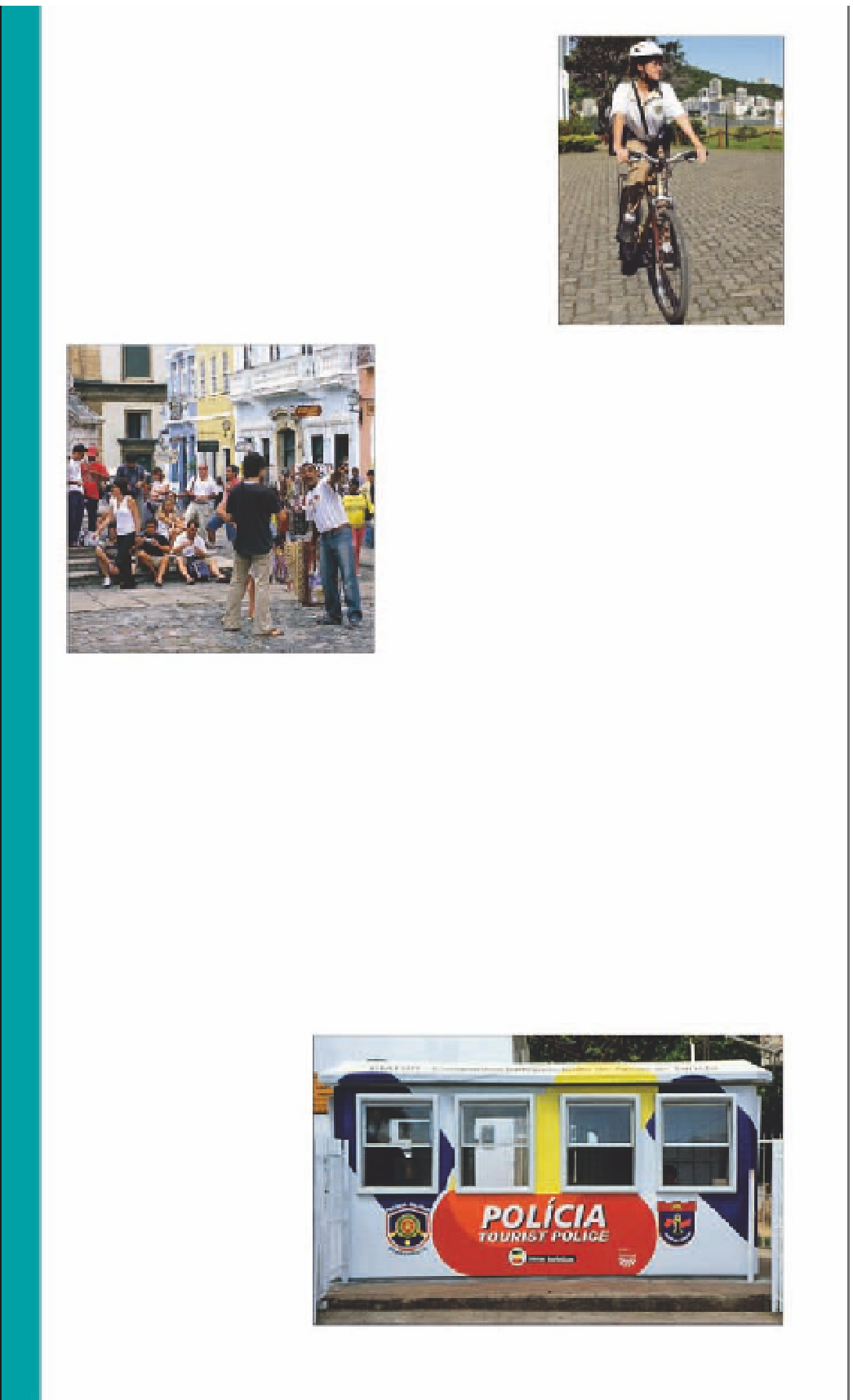Travel Reference
In-Depth Information
Safety for Travelers
Brazil is known to have a higher crime rate than
anywhere in North America and Europe. However,
in reality, the kind of violence that affects travelers
is mostly limited to the bigger cities, and is usually
restricted to crimes that target valuables such as
cameras, credit cards, cell phones, or cash. Such
assaults are rare in the countryside and smaller towns.
While some parts of Brazil can truly be regarded as
violent and dangerous, travelers can be assured of
personal security by using common sense and
observing some very basic precautions.
A Guarda Municipal policewoman
patrolling on a bicycle, Rio City
stores. Keep a few
small bills handy
in a pocket so that
when making small
purchases, the
wallet doesn't have
to be pulled out in
a busy area. Public
transport is safe in
the daytime, but in
the evenings taxis
are a better option.
If you get robbed,
just hand over
your valuables, as
robbers are often
armed with a gun
or a knife. Streets
and public places can be
unsafe at times. A very
common technique is to
distract the victim by spraying
something on their shoulder.
An accomplice may then offer
to clean the mess, while the
thief will make off with your
belongings. The best and
safest way is to politely turn
down any such offer.
It is always best to exercise
caution when someone
unknown offers a drink, or
even cigarettes. Instances of
drugging, or spiked drinks are
not uncommon in Brazil.
POLICE
Brazil has several different
types of police that travelers
are likely to encounter.
Known to be the most
efficient by far, the
Polícia
Federal
(see p424)
is
responsible for passport
control at airports and border
crossings. Dressed in plain
clothes, they deal with visas
and their extensions.
Dressed in gray uniforms
and caps, the
Polícia Militar
are responsible for public
safety and can be seen
patrolling the streets, beaches,
and highways. These police-
men often carry out “blitzes”
(traffic checks) along major
streets or roads. These can
appear a little intimidating as
the Polícia Militar come out in
full gear, carrying automatic
weapons. If you are driving
a car, slow down, turn on the
interior light, and roll down
the windows.
A few cities with a strong
tourist presence, such as
Rio and Salvador, also
have
Polícia de Turismo
,
Local showing the way to visitors, Salvador
PERSONAL SAFETY
The large cities, especially Rio
de Janeiro, São Paulo, and
Salvador, are generally consi-
dered more prone to violence
than the rest of Brazil.
Statistically, crime rates in
these cities are significantly
higher than in cities in Europe
or the US. However, much of
the violent crime is confined
to poorer neighborhoods in
parts of the city where trav-
elers rarely venture. The
crime that visitors are most
likely to be susceptible to is
theft or robbery. The most
basic precaution is not to
carry anything worth stealing
and to avoid empty beaches
and nearly-empty streets
after dark. Avoid ostentatious
behavior such as walking
around with expensive
equipment; instead keep
it in a plain bag.
When sightseeing, keep all
belongings in a bag that can
be placed in a money-belt.
Never carry large amounts of
cash. Credit cards are widely
accepted and can be used for
purchases in most hotels and
A brightly painted tourist police station in Olinda





































